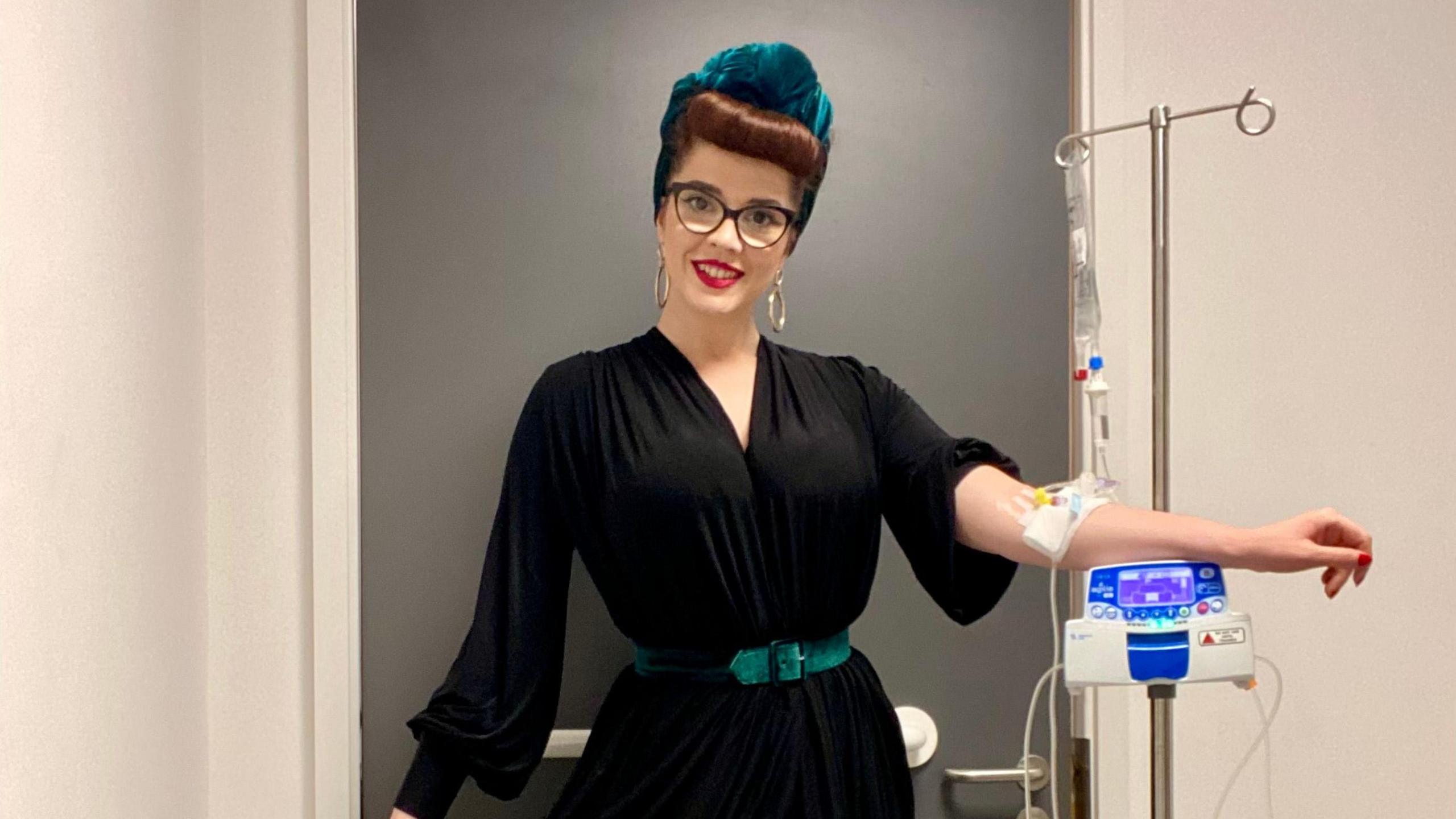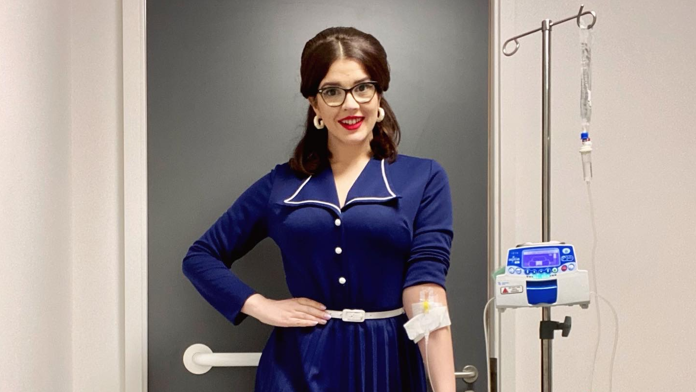'I’m proud that Crohn's disease is part of me'

Scarlett Luxe dresses up for her hospital appointments to feel "empowered"
- Published
A vintage-inspired model living with Crohn's disease has said she is proud it is a part of her "because it shows I'm strong".
Scarlett Luxe, 29, from Frome, Somerset, was diagnosed with the disease when she was 15 years old.
She said "bells rang" after experiencing symptoms such as extreme fatigue, nausea and "blood in my poo", aged 14.
Now, 15 years on, Ms Luxe dresses up in 1940s and 50s style for her hospital appointments, which she said makes her feel "empowered".
"It's something that makes me feel like myself," she said.
"When I do dress up at the hospital, the nurses really enjoy it.
"They look forward to seeing what I’m wearing and they even sometimes take bets as to whether I’ll be in a dress, whether I’ll be in a skirt, so it’s really lovely."
Ms Luxe told BBC Radio Somerset that she was a very active child and was at dance class every night before she started to feel unwell.

Ms Luxe was diagnosed with Crohn's disease when she was 15 years old
"I thought it was hormone imbalance or something to do with puberty," she said.
"Because of the blood passing from poo, that was the biggest thing that made me go - 'that's not normal'."
Ms Luxe, whose real name is Sarah Wingrove, said it took a year from seeing her GP to being formally diagnosed with Crohn's disease, which she described as "quick".
"I was incredibly lucky as I was under 16 and classed as a child," she said.
"I was seen a lot quicker than a lot of people do with getting diagnosed."

Ms Luxe, who has been a model for 10 years, said it is "lovely" to dress up for her hospital appointments
Crohn's Disease and Ulcerative Colitis are Inflammatory Bowel Diseases (IBDs) which can cause painful sores (ulcers) and inflammation in your gut, the charity Crohn's & Colitis UK said.
They are lifelong conditions, but there are periods where they can be controlled and others where those with the diseases may experience a 'flare-up'.
Ms Luxe said: "Hearing that it was a lifelong condition you go 'oh my goodness', I can't get away from it.
"But as soon as I got diagnosed people I knew suddenly appeared and they'd say 'oh, my daughter's got Crohn's disease' or 'my auntie's got it', and then you can talk to each other and learn about what advice they would recommend."

The model said she tries to find a "happy balance" with everything
Ms Luxe said her flare-ups tend to come when she feels stressed.
"When I’ve been stressed, with work perhaps, it’s instantly caused pain, having to use the bathroom more frequently," she said.
The model also tends to stay away from caffeine and spicy foods, which can trigger a flare-up, but emphasised triggers are different for everyone.
She said: "All these things I've had to learn about my body and what works best for me.
"It's really trying to find a happy balance with everything."
'Important to seek help'
Ms Luxe said it is her medication for the disease that helps her to live a "relatively normal life", which she will supplement with over-the-counter medication if she experiences a flare-up.
Director of services, advocacy and evidence at Crohn's and Colitis UK, Ruth Wakeman, said in some cases it can take a long time to be diagnosed with IBDs.
"We find that people do experience symptoms for a long time before seeking help," Ms Wakeman said.
"It's really important to seek help if you're concerned."
Follow BBC Somerset on Facebook, external and X, external. Send your story ideas to us on email or via WhatsApp on 0800 313 4630.
Related topics
- Published26 May 2021

- Published30 December 2022
